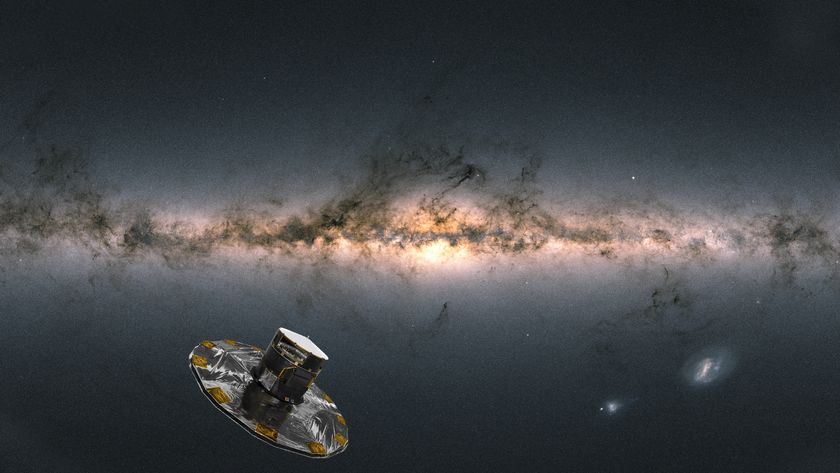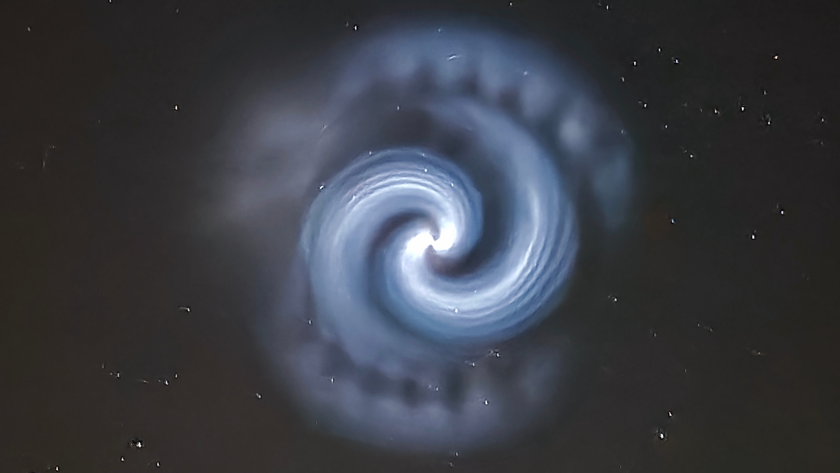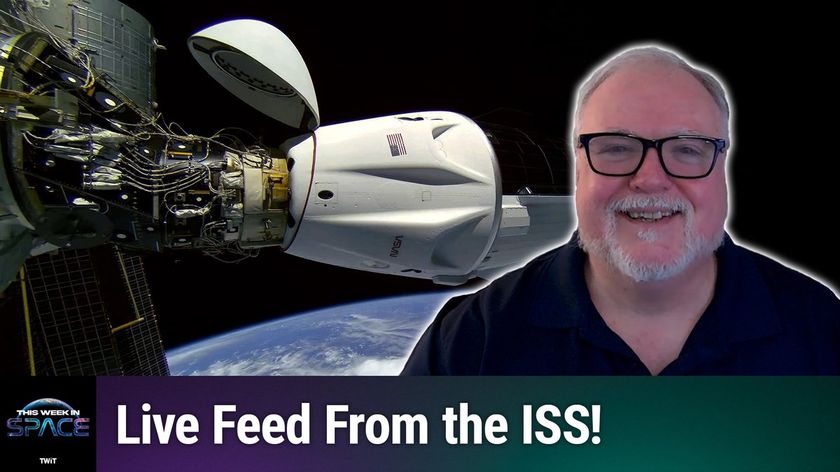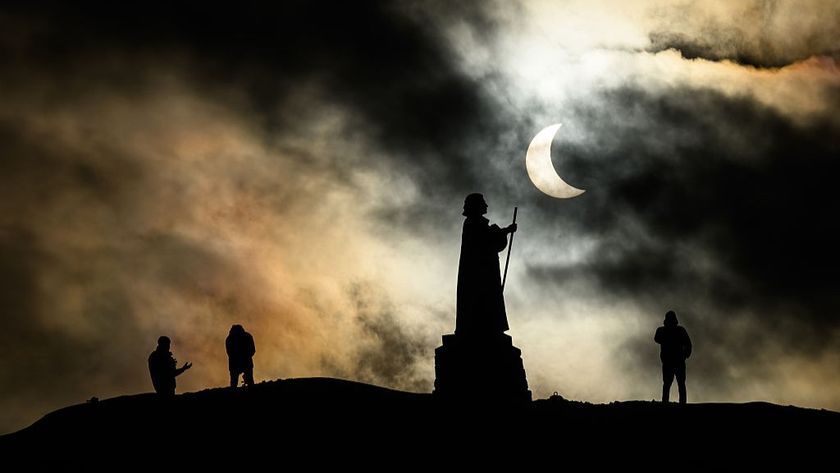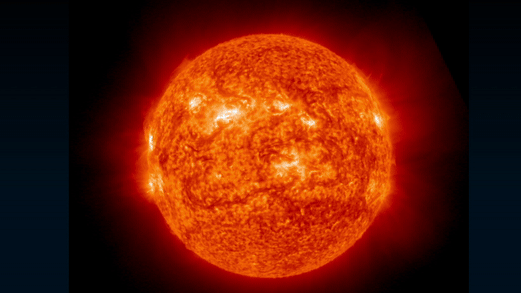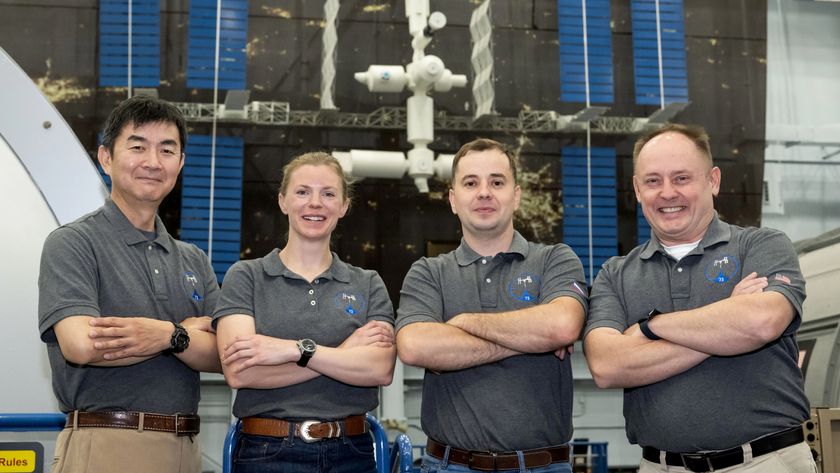
'The Martian' Author Andy Weir & Steve Jurveston Mind-Meld on Mars Colonies

Donald Goldsmith is a freelance science writer and co-author (with Neil Tyson) of "Origins: Fourteen Billion Years of Cosmic Evolution." Goldsmith contributed this article to Space.com's Expert Voices: Op-Ed & Insights.
"I'm deeply afraid of flying," admits Andy Weir, self-titled space nerd and author of the best-selling novel "The Martian," now being filmed by director Ridley Scott with actors Matt Damon, Jessica Chastain and Kristin Wiig. Buoyed by the just-released paperback version of his book — but unwilling to take any flights to promote it — Weir met last week with investor Steve Jurvetson, fortunately close to Weir's home on the San Francisco peninsula.
This videotaped encounter between the two space-colonization enthusiasts — the visionary and the venture capitalist — was the brainchild of Keri Kukral, the leader of the new internet channel RawScience.tv.
Jurvetson, a partner in Draper Fisher Jurvetson (DFJ), sits on the board of Elon Musk's SpaceX ; his company has also invested in Planet Labs, which aims to provide daily satellite images of Earth. His deep and abiding interest in space travel finds embodiment in the dozens of artifacts displayed in DFJ's lobby and his personal office. Meeting for the first time, Weir and Jurvetson seemingly out-rhapsodized each other in their desire to resolve the issues that confront any humans seeking to establish long-term residence on Mars .
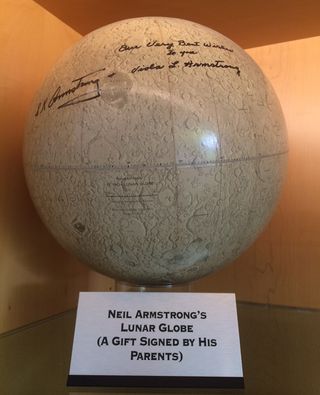
Mars and "The Martian"
Weir, who spent 25 years as a computer programmer, began posting chapters of his book as a blog to explore key issues: How do we get to Mars? What could go wrong there? How could we solve those problems? What if more than one arose simultaneously? He made his "hapless" main character suffer as many misfortunes as he could foresee — and somehow overcome them.
His blog grew into a single electronic file, and then into a Kindle version, which attracted attention from a hard-copy publisher.
Get the Space.com Newsletter
Breaking space news, the latest updates on rocket launches, skywatching events and more!
"I've been really surprised by the reaction," he noted happily, "not just science geeks—it turned out to have mainstream appeal!" [Andy Weir: If We're Serious About Going to Mars, We Need Artificial Gravity]
In his novel, Weir succeeded in vividly imagining life-threatening problems that may arise for a planetary colonist — "The Martian" protagonist, a botanist on a one-month mission to establish a base on Mars, finds himself left for dead by his fellow astronauts after an accident that causes them to return to Earth. The "martian" is left jury-rigging equipment to survive the four-year interval before anyone can return to help him.

The Mars reality
Jurvetson aims to take a "down-to-Mars" approach to solving such problems in real life.
"SpaceX is pivoting in this direction," he said. "Some of the challenges in science and engineering will open our eyes — for example, biological conversion processes," which employ microbes to change otherwise waste organic material into useful substances.
In his remarks, Jurvetson emphasized the fundamental issues: Mars colonists must find a means to derive food, water and fuel from the seemingly barren Martian soil, and then use Martian resources to expand their habitat. Colonists also must not neglect the issues that arise from human psychology, Jurvetson added, elements that NASA recently tested in Hawaii [Volunteers Emerge from Mock Mars Base in Hawaii]
A Biosphere experiment in Arizona two decades ago yielded an intriguing insight, said Jurvetson: "Don't make life too easy!" When humans confine themselves to small quarters for long periods of time, routine living can easily lead to life-threatening situations arising from inattention and hostility.
When it comes to the search for life on Mars — still a primary factor for both public and scientific interest in the red planet — Jurvetson, stressed that "it's all about information." He envisions a different approach to the long-hoped-for sample-return mission: When astronauts discover Martian microbes, they could send the genetic information, rather than the microbes themselves, back to Earth for detailed analysis.
"Or this could work in reverse," he added. "You send equipment to Mars to build organisms there," creating Mars biomass built to Earth specifications.
The future is not yet written
The protagonist in Weir's novel finds himself alone on Mars as the result of a (not quite scientifically accurate) fierce Martian sandstorm — a reminder that all exploration may well encounter unforeseen difficulties. And, Weir happily acknowledges, "The Martian" also ignores one of the greatest hazards to life on Mars: radiation that would induce fatal cancers after only a few months.

None of those exclusions detract from the gripping tale that Weir has produced — gripping precisely because no story resonates more deeply than the struggle to survive against overwhelming odds. Does this foreshadow what may occur someday on Mars? Will Mars colonization prove much more difficult than Weir and Jurvetson imagine? Does doing whatever we choose on other worlds properly square with developing concepts of planetary conservation?
Questions such as those must be confronted and answered before human life on Mars becomes a reality, even as Weir, Jurvetson, and others like them strive to achieve our interplanetary future.
Follow all of the Expert Voices issues and debates — and become part of the discussion — on Facebook, Twitter and Google+. The views expressed are those of the author and do not necessarily reflect the views of the publisher. This version of the article was originally published on Space.com.
Join our Space Forums to keep talking space on the latest missions, night sky and more! And if you have a news tip, correction or comment, let us know at: community@space.com.
